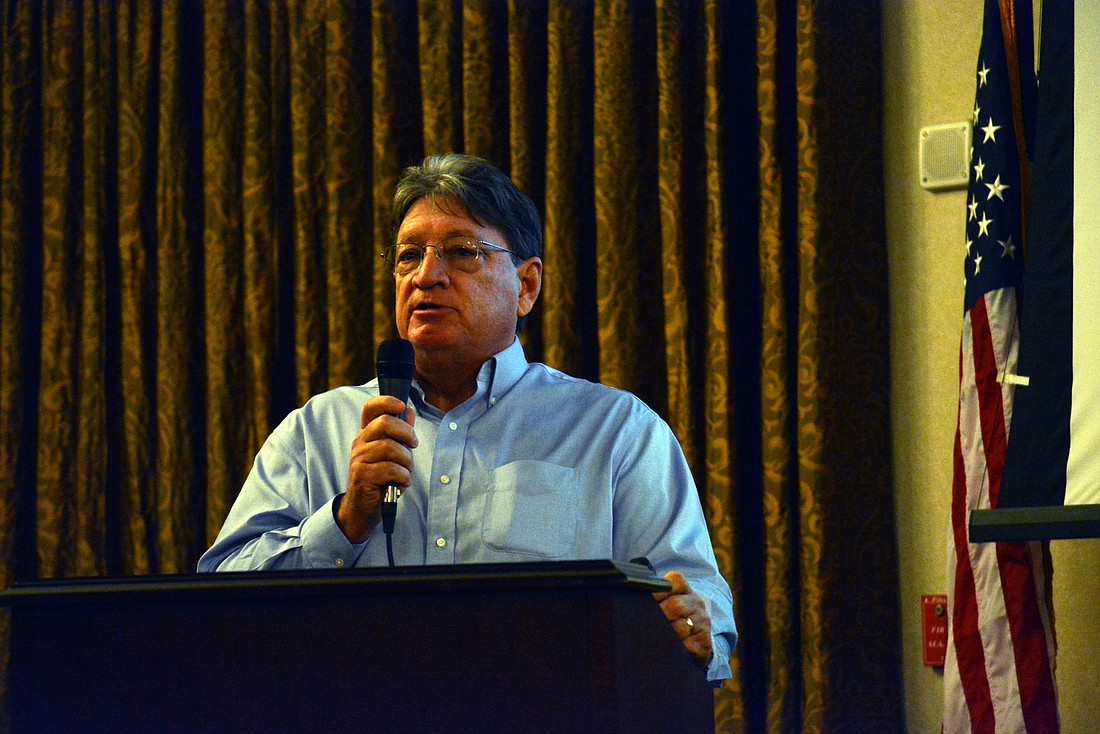- December 16, 2024
-
-
Loading

Loading

Sarasota civil engineer Steve Suau told the audience at the Feb. 18 LWR Talks lecture series that his water filtration project in partnership with Schroeder-Manatee Ranch, the University of Florida and the Southwest Florida Water Management District will begin by early March.
The project, which aims to produce more usable irrigation water for Lakewood Ranch, was expected to break ground in January at a 2.5-acre site near the intersection of White Eagle Boulevard and Old Pope Road but has been slightly delayed.
SMR will dig a basin to hold reclaimed water from Manatee County. About 1.5 million gallons will run through the filtration system each day.
Water pumped into the basin will seep through filters made of wood chips and saw dust and then through a filter of biochar, a substance created from heating carbon-based materials, such as wood, in the absence of oxygen. The
water then will be released into a holding lake.
Suau, who was speaking at Gold Coast Eagle Distributing, hopes the new filtration process will reduce nutrient levels in the water, so they meet Advanced Water Treatment standards, which means there are minimal levels of nutrients, such as phosphorous and nitrogen.
“We all need nutrients,” Suau said. “The problem is when they’re in excessive quantities. Our waterways are sensitive.”
Suau, who is working with SMR’s irrigation utility, Braden River Utilities, on the project, was one of three speakers during the lecture series event about water quality issues and sea level raise.
Manatee County’s reclaimed water does not meet AWT standards, so it cannot be used in the area of Lakewood Ranch south of 44th Avenue East and north of University Parkway. That area is considered part of the Evers Watershed and must use AWT-quality water for irrigation per state regulations. Currently, the reclaimed water from Manatee County is used only for agriculture outside the watershed, Suau said.
Braden River Utilities gets AWT water from both the cities of Sarasota and Bradenton to use for residential irrigation in Lakewood Ranch.
Suau said he is optimistic about the results of the pilot program. Testing conducted over the past two years by SMR, through Braden River Utilities, have shown the system could bring nutrient levels down to AWT standards.
It will be one year before the pilot study is complete.
Other speakers at the LWR Talks lecture were Dr. Cynthia Heil, director of the Red Tide Institute at Mote Marine Laboratory and manager of Mote’s Harmful Algal Bloom Mitigation and Ecology Program, and Barbara Lausche, director of the Marine Policy Institute at Mote Marine Laboratory and Aquarium. They spoke about harmful algal blooms and sea level rise, respectively.